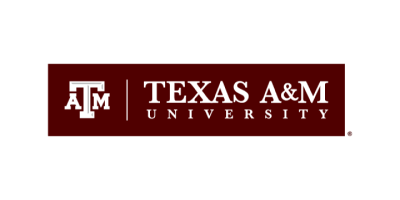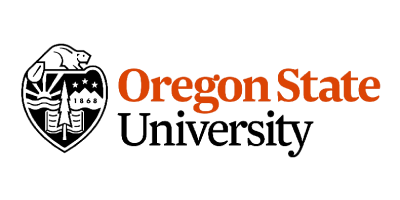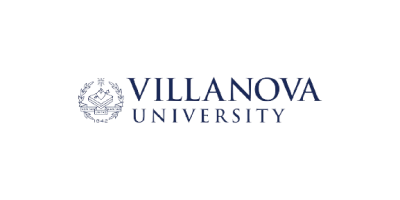Case Studies
HelioCampus partners with more than 150 forward-thinking institutions to transform institutional effectiveness with our best-in-class data analytics, financial intelligence, and assessment and credentialing platforms. Don’t just take our word for it - see what our clients are accomplishing below.
Labor cost benchmarking
Data-Driven Growth in a Recession
Learn how AU identified under-funded departments to improve employee satisfaction and inform reinvestment opportunities.
Institutional data analytics
To Build or Buy a Data Analytics Platform
Learn how Ball State built an analytics platform to improve strategic decision-making across the university.
Revenue growth and ROI
A Data-Informed Strategy
Learn how FSU transformed their financial aid strategy to better address unmet need with data analytics.
Labor cost benchmarking
How Labor Cost Analytics Allows for Smarter Investments and Greater Cost-savings
Learn how John Jay reinforced its institutional decision-making with data to compare spending & best practices against internal & external benchmarks.
Institutional effectiveness
Leveraging LMS Integration to Automate and Improve Assessment
Learn how LSCC overhauled manual efforts to automate assessment, including faculty inputs.
Institutional data analytics
Accelerating a Culture of Data Governance & Data-Informed Decisions
Learn how New York Tech partnered with HelioCampus to foster a culture of governance.
Institutional data analytics
Launching an Analytics Transformation
Learn how OU translated metrics into meaning to transform their data analytics and decision-making capabilities.
Accreditation and self study
How Rutgers Digitized their Assessment & Accreditation Process with HelioCampus
See how Rutgers University used HelioCampus Assessment & Credentialing to unify student learning outcomes assessment across the institution. Read now.
Institutional data analytics
Partnership for a Data-Rich Organization
Learn how St. Edward's upleveled internal skillsets and capabilities with a comprehensive data analytics platform.
Institutional data analytics
Leveraging Data Analytics to Drive Retention and More
Learn how SU built a data analytics platform for easier access to data & enable strong decision-making around key initiatives.
Institutional data analytics
Unlocking Financial Sustainability with HelioCampus Academic Cost Analytics
Learn how Suffolk University helped deans and department heads find ways to increase efficiencies within academic programs.
Labor cost benchmarking
HelioCampus Cost Analytics Partnership Yields Actionable Results for Temple University
Temple measured their administrative and academic performance to enable smarter financial decisions and investments. Read more.
Accreditation and self study
Streamlining Assessment & Accreditation with HelioCampus
Learn how Texas A&M completed their SACSCOC Decennial Report despite being short-staffed.
Accreditation and self study
Decennial Report: An Inclusive Model for Decision-Making
Learn how TCU transformed their accreditation process to create a sustainable approach to integrated planning.
Labor cost benchmarking
Reimagining Workforce Planning
Learn how UB increased long-term affordability from their hiring plan.
Institutional data analytics
Driving Institutional Effectiveness with Data Analytics
Learn how UD built a comprehensive data analytics platform to measure their institutional effectiveness.
Institutional data analytics
A Focused Approach to Analytics Pays Off
Learn how UMGC was able to increase their student enrollment rate by using institutional data to make strategic decisions.
Institutional data analytics
No Exceptions: How UMass Transformed Their Data Culture
Learn how UMass Amherst fostered an evidence-based decision-making culture, heightening data literacy, and adopted a proactive stance to boost student success and retention.
Institutional data analytics
Building a Culture of Data
Learn how UNC System built a culture of data by connecting all their institutions in one centralized data warehouse.
Institutional data analytics
Building a System-Wide Data and Analytics Capacity
Learn how UNC System rebuilt their data warehouse that solves data siloes, improved data visuals, and deeper insights.
Institutional data analytics
The Power of Data During a Big Transition
Learn how USC broke down data silos and unearthed LMS insights during the pandemic.
Academic portfolio evaluation
How USC Upstate Optimized Class Sizes and Course Sections with HelioCampus APM
Read how University of South Carolina Upstate used HelioCampus Academic Performance Management to streamline course offerings, improve forecasting, and drive decision-making.
Institutional data analytics
Using Data Analytics to Drive Retention Strategies
Learn how USM measured program productivity and their tactics for driving student success.
Institutional data analytics
Building a Data Strategy for Higher Education
Learn how Villanova built and scaled their data analytics strategy campus-wide.

"Given all the changes we were undergoing, getting an up-to-date snapshot of our university should have been a challenge. But thanks to [HelioCampus], we could easily make changes [to our Decennial Report] up until the day before…This platform really saved us."
Dr. Alicia Dorsey
Associate Vice President for Academic Effectiveness & Planning

“With HelioCampus’ Standard Activity Model (SAM) for student services, we were able to break down the nebulous idea of student success into distinct parts. Now we can use that data to glean nuggets of information that we can share across colleges to guide their investments and boost student success.”
Nicole Dolan
Director of Budget Development

“HelioCampus set up the entire environment - the data lake, ETL layer, Tableau data visualization environment, student data models that included admissions, course registration, and the entire student lifecycle was all designed for us. If we had taken on that aspect of the project internally, it would have taken us years.”
Trina Das
Assistant Vice Provost

